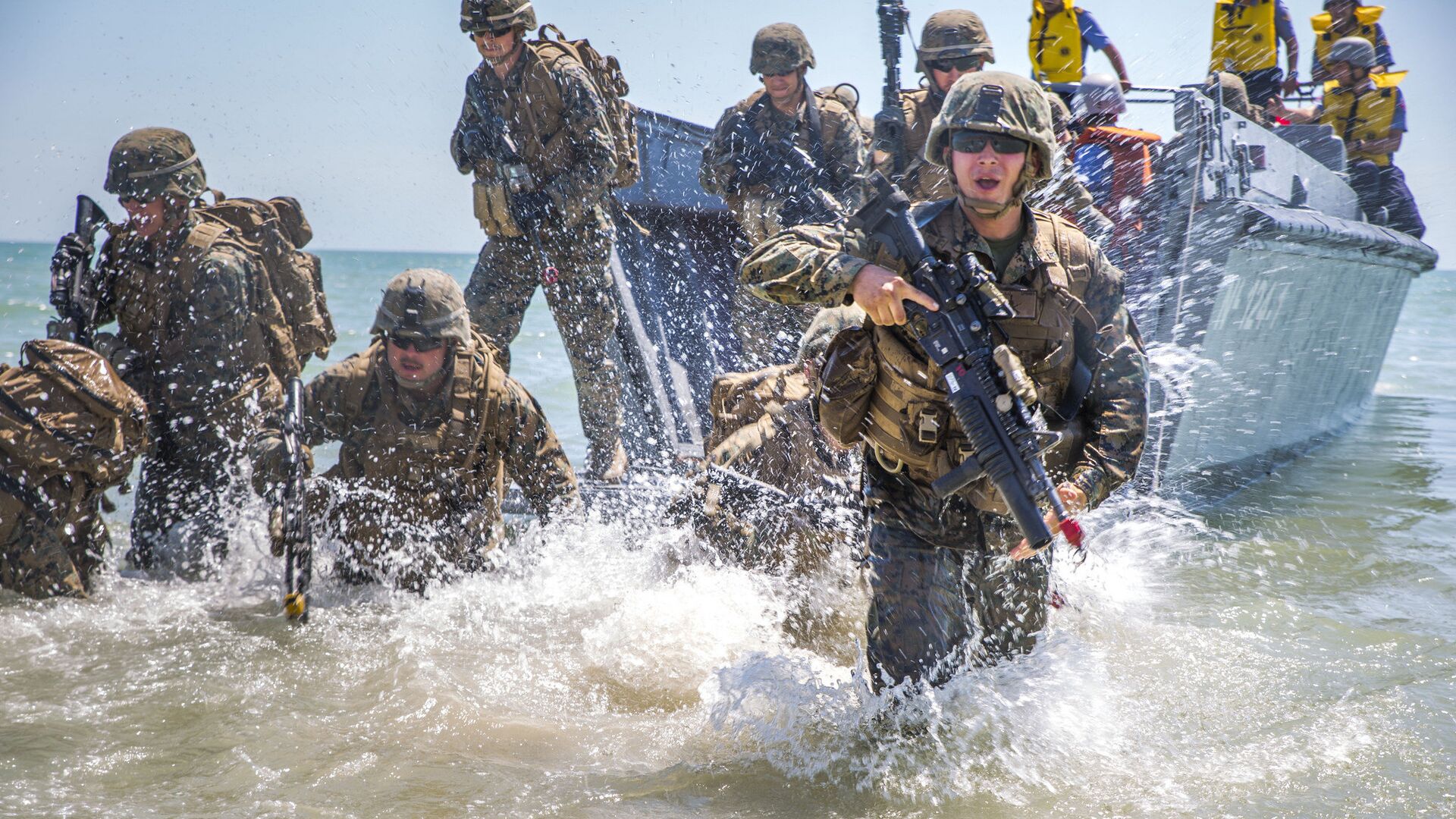USMC Pushes to Retain Marines, Abandon 36 Years of Recruiting 'Replaceable' Troops

CC0 / /
Subscribe
US Marine Corps data shows that, for the past 36 years, the service annually discharged about 75% of its first-term Marines and recruited the same number of replacements. Marine leadership is now seeking to ditch the bottom-heavy system to adopt a format that prioritizes retention over recruitment.
On Thursday, General David H. Berger, commandant of the US Marine Corps, unveiled the service's 'Talent Management 2030,' a release that, in part, lays out a framework for how the service will implement new recruitment models and introduce new measures to increase career flexibility among Marines.
"The most important element of this report is the individual Marine," Berger said in a quoted statement. "Transitioning to a talent management system will enable us to better harness and develop the unique skills and strengths of our Marines, improve the performance of our units in competition and combat, and ensure that we remain ‘most ready when the Nation is least ready,’ today and into the future."
For example, the service is seeking to develop additional return-to-service options for Marines who may have left active duty for a variety of reasons.
Additionally, the Marine Corps hopes to implement lateral entry opportunities for highly-qualified recruits who have talents that align with the service's needs.
Though the executive summary of the talent management system highlights that data can be collected on the development of an individual Marine's talents, it also asserts that service members are viewed as "individuals, not inventory."
Today, the Commandant of the Marine Corps released his plan for Talent Management. As a people-centric organization, fighting and winning our nation's battles depends upon our ability to recruit, develop and retain the best Marines we can. pic.twitter.com/1LRHcd57Js
— U.S. Marines (@USMC) November 3, 2021
The documents offer that balancing retention and recruitment will assist in maturing the Marine Corps with at least three desired outcomes: improved physical fitness; better cognitive function and decision-making skill; and increased readiness across the service's Marine Expeditionary Forces (MEFs).
Citing remarks from Berger, the Washington Post reported that the Marine Corps commandant believes the service will not be able to remain operating at its desired level if it continues prioritizing the recruitment of a "young, physically tough, replaceable force."
"We’re in a market for talent," he said. "So the Marine that we trained for four or 10 years, we need to work hard to keep. And if the reason that they’re leaving is they can’t see past either, 'I can have a military career, or I can have a family,' we have to pull out the stops to try to find ways where we can keep them."
Additionally, the Marine Corps is seeking to cut its force down to some 174,000 service members by 2030, per Force Design 2030, a complementary framework released in March. There are currently an estimated 180,000 US Marines on active duty.
